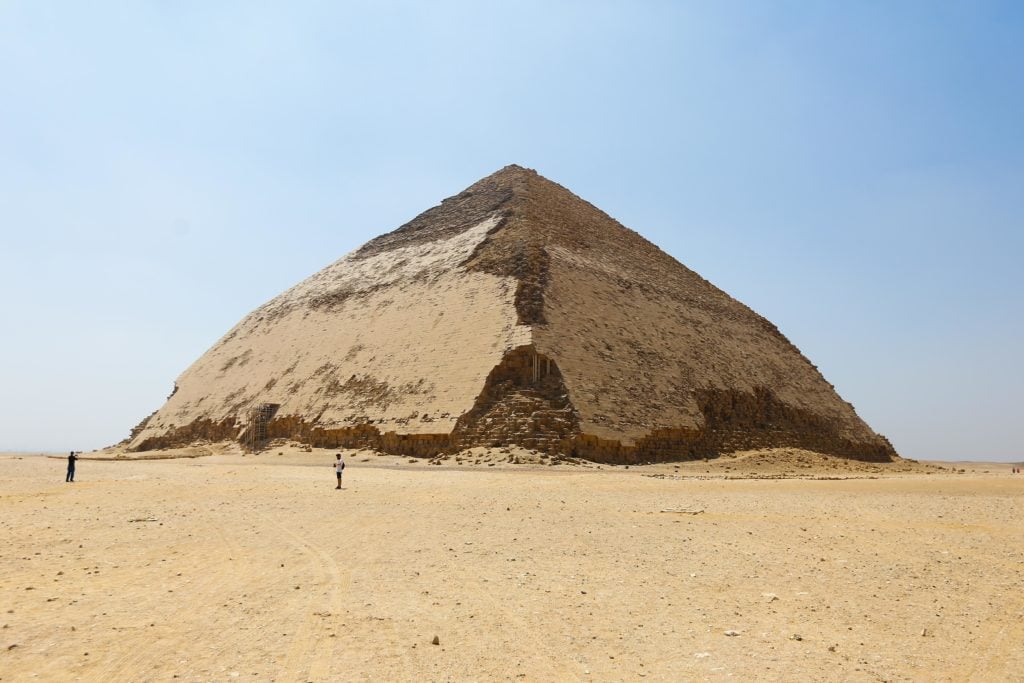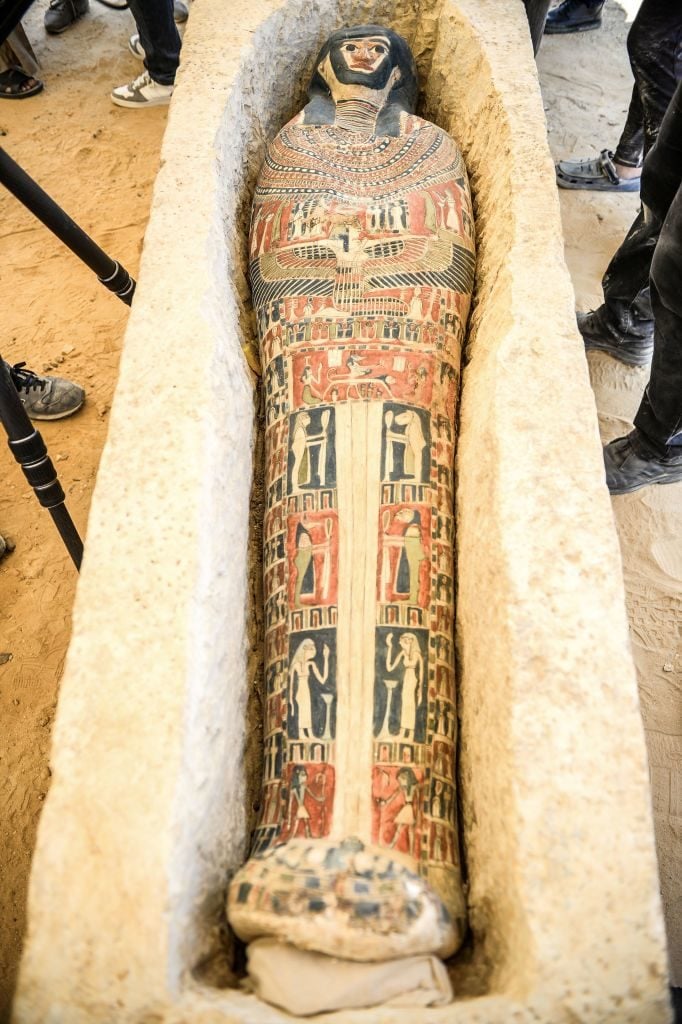Art World
For the First Time in Over 50 Years, Egypt’s Famous ‘Bent Pyramid’ Is Now Open to the Public
Researchers discovered ancient tools, sarcophagi, and mummies in the structure, which is one of the oldest pyramids in the world.

Researchers discovered ancient tools, sarcophagi, and mummies in the structure, which is one of the oldest pyramids in the world.

Taylor Dafoe

Two pyramids in Egypt—both more than 4,000 years old—are now open to the public for the first time in decades.
The Egyptian Ministry of Antiquities has completed its multi-year restoration of the famous “Bent Pyramid” and its sister structure. Both sites, located roughly 25 miles south of Cairo in the Dashur royal necropolis, are listed as UNESCO World Heritage landmarks. This is the first time since 1965 and 1956, respectively, that the pyramids have been declared suitable for entry by tourists.
Antiquities Minister Khaled al-Anani shepherded a group of Egyptian leaders and 40-some ambassadors from foreign countries to Dashur on Saturday for the unveiling. He announced that excavators had also unearthed numerous sarcophagi inside the Bent Pyramid, many of which housed mummies in preserved condition, as well as stone-cutting instruments. Experts outfitted the inside of the tomb with ladders and lights, making it safe for visitors.
The project is the latest in a string of archaeological excavation and restoration efforts Egypt began in August 2018 and plans to wrap up in April.

A sarcophagus, part of a new discovery carried out almost 300 meters south of King Amenemhat IIs pyramid at Dahshur necropolis, is exposed near the Bent Pyramid. Photo: Mohamed el-Shahed/AFP/Getty Images.
The 331-foot-tall Bent Pyramid, named for its uniquely tapered shape, was erected for Pharaoh Snefru around 2,600 BC. Today, it’s recognized as one of the earliest examples of pyramid construction, one which informed the design of future royal tombs. Researchers believe that halfway through the pyramid’s completion, its builders changed the angle at which it arose from the bottom to make the structure more stable.
The second tomb, a 59-foot-tall structure described as as a kind of annex to the Bent Pyramid, was possibly built for Pharaoh Snefru’s wife Hetepheres. Neither the remains of Senerfru nor Hetepheres have yet to be discovered by archaeologists.